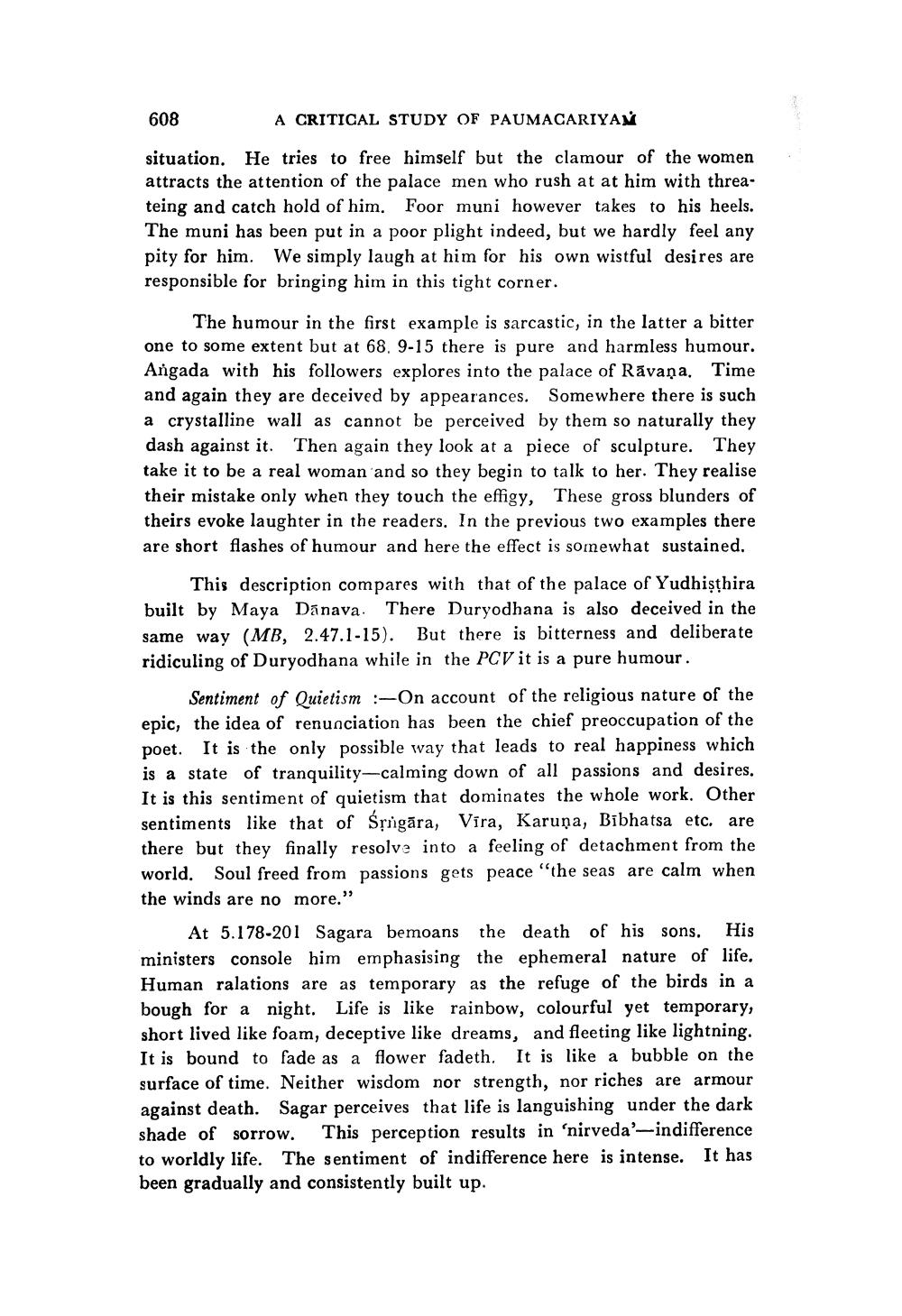________________
A CRITICAL STUDY OF PAUMACARIYAM
situation. He tries to free himself but the clamour of the women attracts the attention of the palace men who rush at at him with threateing and catch hold of him. Foor muni however takes to his heels. The muni has been put in a poor plight indeed, but we hardly feel any pity for him. We simply laugh at him for his own wistful desires are responsible for bringing him in this tight corner.
608
The humour in the first example is sarcastic, in the latter a bitter one to some extent but at 68. 9-15 there is pure and harmless humour. Angada with his followers explores into the palace of Ravaṇa, Time and again they are deceived by appearances. Somewhere there is such a crystalline wall as cannot be perceived by them so naturally they dash against it. Then again they look at a piece of sculpture. They take it to be a real woman and so they begin to talk to her. They realise their mistake only when they touch the effigy, These gross blunders of theirs evoke laughter in the readers. In the previous two examples there are short flashes of humour and here the effect is somewhat sustained.
This description compares with that of the palace of Yudhisthira built by Maya Danava. There Duryodhana is also deceived in the same way (MB, 2.47.1-15). But there is bitterness and deliberate ridiculing of Duryodhana while in the PCV it is a pure humour.
Sentiment of Quietism :-On account of the religious nature of the epic, the idea of renunciation has been the chief preoccupation of the poet. It is the only possible way that leads to real happiness which is a state of tranquility-calming down of all passions and desires. It is this sentiment of quietism that dominates the whole work. Other sentiments like that of Śṛngara, Vira, Karuna, Bibhatsa etc. are there but they finally resolve into a feeling of detachment from the world. Soul freed from passions gets peace "the seas are calm when the winds are no more."
His
At 5.178-201 Sagara bemoans the death of his sons. ministers console him emphasising the ephemeral nature of life. Human ralations are as temporary as the refuge of the birds in a bough for a night. Life is like rainbow, colourful yet temporary, short lived like foam, deceptive like dreams, and fleeting like lightning. It is bound to fade as a flower fadeth. It is like a bubble on the surface of time. Neither wisdom nor strength, nor riches are armour against death. Sagar perceives that life is languishing under the dark shade of sorrow. This perception results in 'nirveda'-indifference to worldly life. The sentiment of indifference here is intense. It has been gradually and consistently built up.




